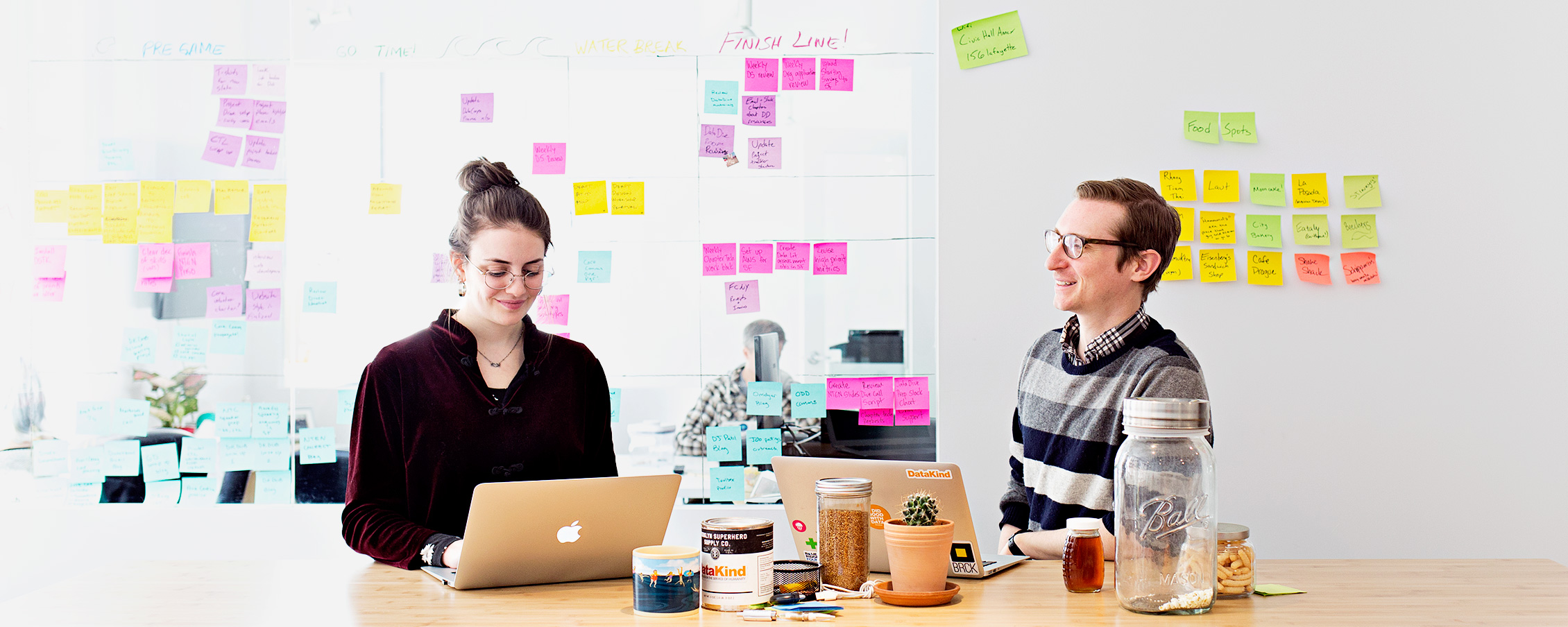Lower poverty rates? Bring electricity to underdeveloped nations? Cure disease?These questions drove Jake Porway to create DataKind in 2011. What started as a side project while working as a data scientist at the R&D labs of the New York Times quickly blossomed into an organization dedicated to harnessing the power of data science in service to humanity.

DataKind uses three types of programs to connect teams of data scientists with mission-driven organizations around the globe. Community events provide opportunities for networking and quick consultation so organizations can begin their data science journey or get advice on data hurdles. Weekend-long events called DataDives help these organizations do initial data analysis, exploration, and prototyping. And DataKind’s signature program, DataCorps, offers a six- to nine-month engagement in order to use data science to transform an organization and, potentially, its entire sector.For both the long- and short-term projects, it’s a highly collaborative process, and like other pro bono operations, all of the data scientists involved are volunteers. “People often ask me, ‘Why would anyone volunteer to do this when they could make six figures doing it in the industry?’” says Porway. “There’s a long history of professionals working pro bono. Data scientists in the private sector are paid very well. It makes sense to give some of that back.”To date, DataKind has worked with more than thirty-five organizations. From helping teens in crisis to bringing solar power to needy recipients in India, no project, it seems, is too large or small. Since its inception four years ago, the company has blossomed into an international organization with six chapters and hundreds of volunteers working together to solve the world’s biggest humanitarian problems.
DataKind works with any social organization looking to supercharge its data quality; here are three recent projects.
Medic Mobile
The Challenge: San Francisco-based Medic Mobile, a nonprofit that connects health workers with patients in need around the globe, needed a way to quantify the impact of its mission.
The Solution: One of the ways the team of volunteer data scientists achieved this goal was by adapting a highly technical tool to one with a user-friendly interface.
The Result: Medic Mobile can now more easily identify the information it needs for making decisions about where and when to implement programs.
HURIDOCS
The Challenge: International NGO HURIDOCS needed to process more than 400,000 judgments from the European Court of Human Rights in order to track how the court’s decisions were impacting human rights efforts in Eastern Europe.
The Solution: DataKind volunteers worked to reveal trends on how judges treat cases. They also helped translate data gathered from the Council of Ministers website to funnel it into HURIDOCS’ existing Caselaw Analyser tool.
The Result: The human rights activists now have quick access to the status of cases and judgments.
Crisis Text Line
The Challenge: Improve response rates for Crisis Text Line, a “9-1-1 for young people in crisis.” Developed by nonprofit DoSomething.org, the line connects teens in crisis with trained specialists via text messages. Since its launch in 2013, CTL has exchanged more than 4 million messages with teens in crisis, representing 87,000 conversations.
The Solution: A team of volunteer data scientists sifted through the data from a quarter-million anonymous text messages and discovered that most specialist surveys were incomplete. Based on those results, CTL condensed the surveys, making it easier for specialists to complete.
The Result: Response rates improved from 20 to 75 percent in just three months.
The results of each project vary; in some cases, volunteer data scientists sift through piles of information and deliver much needed answers to specific questions. Other times, the teams end up revealing insights that help organizations in ways they hadn’t initially anticipated.
One of Porway’s favorite projects was for The Mission Continues, a nonprofit that helps rehabilitate veterans back into society after their military service ends. A group of data science volunteers analyzed survey data to identify the factors that help veterans succeed in the program, which led The Mission Continues to discover ways they could tailor their programs to better support the growing numbers of post-9/11 veterans. “That was such a great project because it’s a classic problem a lot of groups have—a lot of data you can’t look through by hand,” Porway says. “It’s a very human cause, and the things The Mission Continues found can help them reshape their program to better serve veterans.”
DataKind also has worked with iCouldBe, an online mentoring program that pairs at-risk youth with professional mentors to help improve graduation rates in schools. Porway calls the group emblematic of a lot of nonprofits today. They have a “huge database of every interaction they’ve ever had,” he says. That’s fifteen years of data and about 19,000 students. DataKind volunteers analyzed the piles of information to understand what factors define success or failure in the program and discovered that more positive and timely interactions between mentors and mentees yielded higher graduation rates. This knowledge helped iCouldBe improve their curriculum and achieve higher success rates.
iCouldBe was one of several projects that were conducted in partnership with data analytics company Teradata. Sherri Morgan, director of community relations for Teradata, says the work DataKind is doing is impressive on many levels, and the rate at which the company has attracted attention has been staggering. “I know they have far more nonprofit organizations asking for help than they can possibly manage, and Teradata is glad to play our part in helping,” she says. “Now I have charities asking me to connect them. Nonprofits are hungry for it.”
Through these projects, DataKind hopes to increase data literacy by equipping organizations with the ability to leverage data to maximize its impact. Porway noted that as a result of working with DataKind organizations, many have been able to get funding or grants to hire data scientists after successful projects. “So that’s progress too, seeing the social sector becoming more committed to data science,” he says.
For the future, DataKind is working on scaling projects at a steady rate. In addition to launching and supporting six chapters in Bangalore, Dublin, San Francisco, Singapore, London, and Washington, DC, the organization is also working on a “deep approach,” making a commitment to launch a team of in-house data scientists to work full time on projects. “We want a whole framework towards organizational change,” Porway says. “Having people with the capacity to go deep ideally means we have a system where you finish a core project and that’s not the end.”
Even though it’s still early days for the organization, there’s no denying the work that DataKind is doing is exciting and, perhaps more importantly, changing the conversation about how data and data science can be used to make the world a better place. While much of the overarching public discourse on data still centers on issues of privacy and profit, DataKind’s work is forging a new path, where smart decisions are helping mission-driven organizations do their work more effectively based on real-time information.

